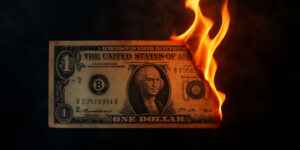Holy Week: A Time of Anger and Purification
“Holy Week,” leading up to Easter Sunday, was a time of anger and purification. When Jesus entered Jerusalem early in the week, He immediately went to the temple and began a work of purification, driving out the money changers and all those who bought and sold in the temple (Matt. 21:12).
Money-Driven Religion
The temple of Jesus’ day had become a center of unethical business practices and underhanded dealings. Because Jewish pilgrims who came to worship at the temple needed animals for sacrifices, local businessmen with dollar signs in their eyes had set up shop selling the required animals and doves at exorbitant prices.
Since purchases and offerings at the temple could not be made with foreign coins with pagan images, other entrepreneurs with similar monetary motives had set up shop and were ripping off foreign worshippers of the Diaspora with exorbitant exchange rates.
The religious leaders who oversaw the temple worship were getting their cut of this flow of tainted money. It was a repulsive and nauseating situation.
This Made Jesus Angry
Jesus was obviously incensed at how the temple worship had been turned into a money-making enterprise. The unreal picture of a “gentle Jesus” who would never oppose or condemn anyone dissolves before our eyes in this stunning Gospel account. This situation obviously made Him angry.
With a whip in His hand and eyes blazing, Jesus entered the temple area and began turning over the tables of the moneychangers and the seats of those who sold sacrificial offerings. He drove them all out of the temple and said to them, “It is written, ‘My house shall be called a house of prayer,’ but you have made it ‘a den of thieves'” (Matt. 21:13).
I am here reminded of a startling statement made by Rios Mont, former president of Guatemala, that should concern every Christian in America. Looking on as an outside observer, He said:
“The Romans made a good religion out of Christianity. The Germans made a good theology out of Christianity. Americans have made a good business out of Christianity.”
Purity Leads to Power
Many years ago, I heard Larry Lea point out that after Jesus cleansed the temple and it became a place of purity, it became a place of power. Matthew 21:14 says, “The blind and the lame came to Him in the temple, and He healed them.” After the temple became a place of power, it became a place of praise with small children crying out in the temple, “Hosanna to the Son of David” (Matt. 21:15). I believe it can be so today.
Persecution then came from those of the religious establishment who were unwilling to suffer the loss of money and power. Mark 11:18 says, “The scribes and chief priests heard it and looked for a way to kill Him. For they feared Him, because all the people were astonished at His teaching.”
May He Come and Cleanse His Temple Once Again
I encourage every Christian to take this week as an opportunity to set aside time and invite Jesus to come once again and purify His temple—which is you—of every motive, attitude and action that is displeasing to Him. Utilize the prayer of David in Psalm 139:23-24 who prayed, Search me, O God, and know my heart … and see if there is any rebellious way in me, and lead me in the ancient way.”
For those who will protest that “we are under grace,” let me point you to Paul, the preacher of grace, who in his second letter to the Corinthian believers, informed them that they are now God’s temple, both corporately and individually (2:17; 6:19). After then reminding them of God’s promises to dwell with them and be their God, he exhorted, “Since we have these promises, beloved, let us cleanse ourselves from all filthiness of the flesh and spirit, perfecting holiness in the fear of God” (2 Cor. 7:1).
As His temple becomes a place of purity, we can expect it to become a place of real power and true praise, both corporately and individually. We can also expect the persecution, but we will have the inner peace and satisfaction, knowing that we have submitted ourselves to the risen Lord, and He is ruling and reigning in our hearts and lives.



























































